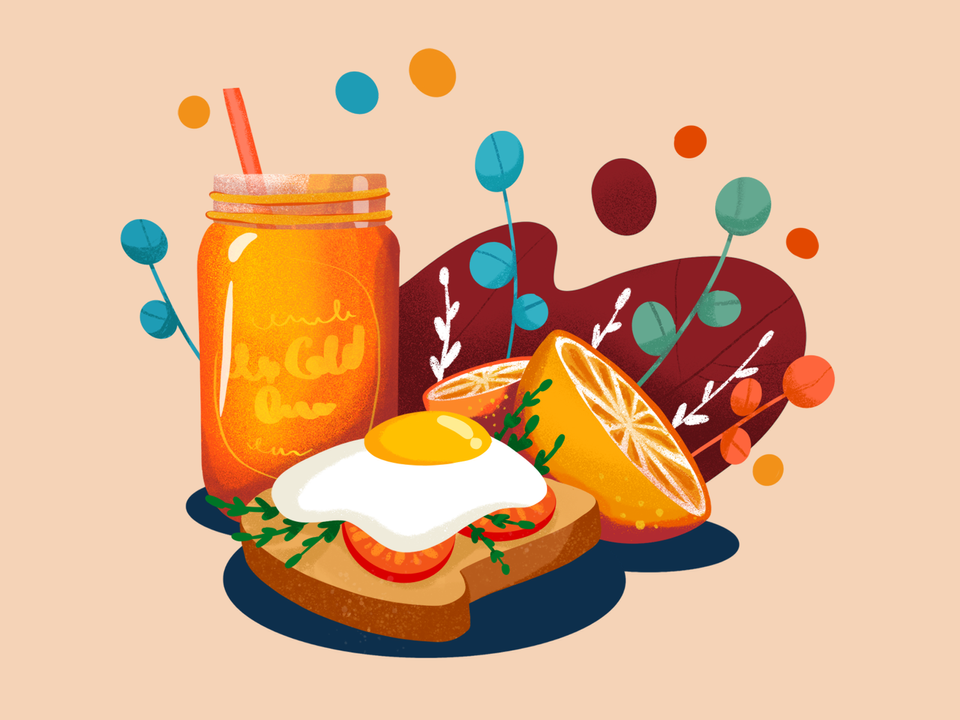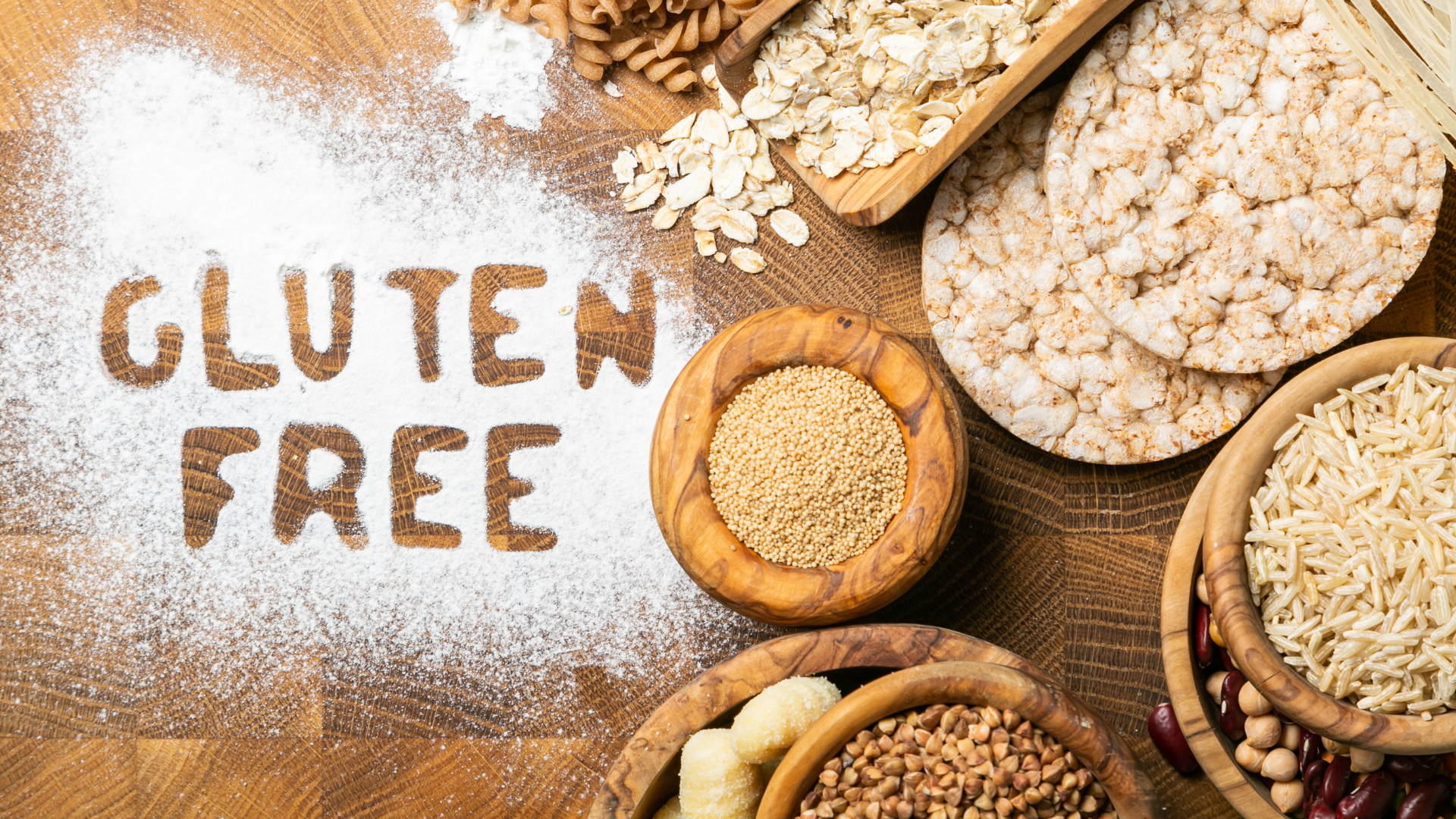The Power of Protein: Starting Your Day Right

Today's Blog At a Glance:
- The Protein Revelation: Dive into the recent findings from Obesity on how protein in your breakfast can shape your entire day's calorie intake.
- Why Protein?: Uncover the multifaceted roles of protein in our body, from muscle building to hormone production, and why it's a satiety superstar.
- Burn Calories with Protein: Discover the thermic effect of protein and how it can boost your calorie burn just by consuming it.
- Quality Matters: Learn about the dietary choices of long-lived populations and the importance of cellular carbohydrates rich in fiber.
- Cellular Carbs Spotlight: A list of whole fruits, vegetables, grains, legumes, nuts, seeds, and tubers that are not only nutritious but also promote fullness.
- Protein-Packed Breakfast Ideas: From traditional South African Boerewors & Eggs Scramble to Protein-Packed Oats, get inspired with meal ideas to kickstart your day with 30g of protein.
In the ever-evolving world of nutrition, protein has always been the steadfast friend we can rely on. But recent research has given us even more reason to embrace this macronutrient, especially during the most important meal of the day: breakfast.
A study recently published in Obesity (PMID: 36321270) has illuminated the profound impact of protein consumption during our morning meal. And the results? They're worth waking up for.
The Protein Advantage
According to this groundbreaking research, individuals who packed their breakfasts with higher levels of protein experienced a significant benefit:
they consumed fewer calories throughout the day compared to those who had a breakfast lower in protein.
Imagine starting your day with a secret weapon against overindulgence, just by tweaking your breakfast!
The Role of Protein in Our Body
Protein isn't just about building muscles; it plays a myriad of roles in our body. It's essential for repairing and building tissues, producing enzymes and hormones, and is a building block of bones, muscles, cartilage, skin, and blood.
But why does it make us feel full?
Protein reduces the level of the hunger hormone ghrelin and boosts the satiety-inducing hormone peptide YY. This means that you're likely to feel fuller for longer after consuming a protein-rich meal compared to one that's low in protein.
The Thermic Effect of Protein
Another fascinating aspect of protein is its thermic effect. This refers to the energy required to digest, absorb, and process the nutrients we consume.
Protein has a higher thermic effect (20-30%) compared to fats (0-3%) and carbohydrates (5-10%).
This means that the body uses more energy (calories) to process protein than it does to process fats and carbs. So, not only does protein keep you full, but it also helps you burn more calories just by eating it!
Quality Over Quantity
But here's where it gets even more interesting. Some of the world's longest-lived populations, known for their low obesity rates, often follow diets that aren't particularly high in protein. So, what's their secret?
The key lies not in how much protein these populations consume, but in what they don't consume. While they might intake less protein, they aren't reaching for the protein-diluted, refined carb-based junk foods that many of us are guilty of indulging in.
Instead, they choose cellular carbohydrates, which are rich in fiber.
These carbohydrates not only provide essential nutrients but also promote a feeling of fullness, preventing overeating.
- Whole Fruits:
- Apples (with skin)
- Berries (blueberries, strawberries, raspberries)
- Pears (with skin)
- Oranges
- Bananas
- Whole Vegetables:
- Broccoli
- Brussels sprouts
- Carrots
- Spinach
- Kale
- Whole Grains:
- Quinoa
- Brown rice
- Barley
- Oats
- Whole wheat
- Legumes:
- Lentils
- Chickpeas
- Black beans
- Kidney beans
- Peas
- Nuts & Seeds:
- Almonds
- Chia seeds
- Flaxseeds
- Walnuts
- Sunflower seeds
- Tubers:
- Sweet potatoes
- Yams
- Regular potatoes (with skin)
- Beets
- Turnips
These cellular carbohydrates are not only rich in fiber but also provide a plethora of vitamins, minerals, and antioxidants, making them an excellent choice for a balanced diet.

Top 10 Lean Protein Sources to Kickstart Your Day
For those looking to harness the power of protein in their morning meal, here are ten lean protein sources that provide around 30g of protein, along with the amount of each food you'd need to hit that target:
- Chicken Breast: 100 grams
- Pork Tenderloin: 100 grams
- Tofu: 150 grams
- Greek Yogurt (Low fat): 200 grams
- Cottage Cheese(Low fat): 225 grams
- Lentils: 250 grams (cooked)
- Black Beans: 250 grams (cooked)
- Tuna: 110 grams
- Eggs: 5 large eggs
- Quinoa: 185 grams (cooked)
Meal ideas:

- Boerewors & Eggs Scramble:
- Start your day with a slice of grilled boerewors paired with a scrambled egg mix. Add some spinach or mushrooms for added nutrients.
- Protein content: Boerewors (approx. 20g for a 100g serving) + Eggs (approx. 12g for two large eggs) = 32g protein.
- Savory Mieliepap with Lean Meat:
- Prepare a savory version and top it with lean grilled chicken or beef strips. Add a sprinkle of cheese for added flavor.
- Protein content: Mieliepap (approx. 3g per serving) + Lean meat (approx. 25g for a 100g serving) + Cheese (approx. 5g for a 30g serving) = 33g protein.
- Biltong & Cottage Cheese Stuffed Omelette:
- Prepare an omelette and stuff it with shredded biltong and cottage cheese.
- Protein content: Biltong (approx. 20g for a 50g serving) + Eggs (approx. 12g for two large eggs) + Cottage Cheese (approx. 5g for a 50g serving) = 37g protein.
- Lentil & Bean Salad with Tuna:
- Mix cooked lentils and beans (like kidney beans) with flaked tuna. Add some chopped tomatoes, onions, and a dash of lemon juice for a refreshing protein-packed salad.
- Protein content: Lentils (approx. 9g for a 100g serving) + Beans (approx. 7g for a 100g serving) + Tuna (approx. 25g for a 100g serving) = 41g protein.
- Protein-Packed Oats:
- Start with 50g of uncooked oats and cook them as you normally would, either with water or milk. Once cooked, stir in a scoop of your favorite protein powder. This not only boosts the protein content but can also add a delightful flavor to your morning oats. Top with some fresh berries or nuts for added texture and taste.
- Protein content: Oats (approx. 6g for 50g uncooked) + Protein powder (approx. 24g per scoop) = 30g protein.
- Yogurt & Seed Parfait:
- Layer Greek yogurt with seeds like chia, flax, and sunflower. Add some local fruits like guava or mango for a sweet touch.
- Protein content: Greek Yogurt (approx. 15g for a 150g serving) + Seeds (approx. 5g for a 20g mix) + Additional protein from fruits = 15g+ protein. (You can add half a scoop of protein powder to hit the 30g mark).
Starting your day with a protein-rich breakfast isn't just a trend; it's backed by science. By incorporating these protein sources into your morning meal, you're not only setting yourself up for a day of better food choices but also taking a step towards a healthier lifestyle.
Remember, it's not always about eating less but eating right. And with protein on your plate, you're already on the right track.